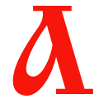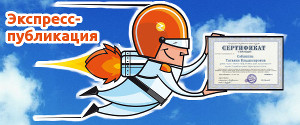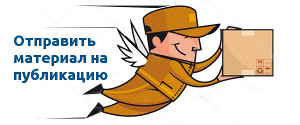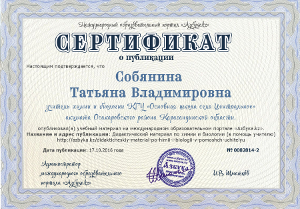Parents’ opinion about updated education program
- ВКонтакте
- РћРТвЂВВВВВВВВнокласснРСвЂВВВВВВВВРєРСвЂВВВВВВВВ
- РњРѕР№ Р В Р’В Р РЋРЎв„ўР В Р’В Р РЋРІР‚ВВВВВВВВРЎР‚
- LiveJournal
- Viber
- Skype
- Telegram
|
Токанова Талшын Оразбеккызы студентка 3 курса, специальность 5В011900 - Иностранный язык, Восточно-Казахстанский государственный университет им.С.Аманжолова, г. Усть-Каменогорск
|
 |
Key words: Parents’ opinion, updated education program, new curriculum, new assessment, TAS, TAQ, disagree, Education ministry, agreement, education, Classroom managers, explaining lessons, trilingualism, last education program.
Annotation
Researcher explored about updated education program. This is the qualitative research about parents’ opinion. In this case for each parent their children’ education is important. Purpose was to find out the parents’ opinion about updated school program. And in this research we inquired parents’ thoughts about the new program given by the Ministry of Education and Science of Kazakhstan for schools. Each parent has their own opinion and experience about education. Researchers found out how they perceive and understand this new curriculum. Research questions were as follows: (1) What do parents know about the updated content of education? (2) How do parents relate to the new school curriculum? (3) What results have parents noticed in their child’s education?
1. Introduction
2. Methodology section
3. Findings and conclusion
4. Recommendation
5. Final thoughts
Introduction
Education is the most important aspect in human life. Every century, every year had its own requirements. At different times we studied differently, because the world is changing and education changes also. Kazakhstan as a developing country has a lot of changes in education. The new education system in Kazakhstan 2019–2020 is a stage in the creation of an effective educational model, the purpose of which is to increase the functional literacy of graduates. Parents are one of the main participants in education. Parents send their child to school in the hope that they will achieve something specific. For each parent educating their children is an important aspect. Each parent has questions like: Do their children show interest and desire to learn, do they like it, what bothers them, how teachers teach them and so one. Every parent is concerned about issues that are responsible for their children’s education. According to the National Qualification Center «Orleu» is «the updated content of education of the Republic of Kazakhstan is an education program that in the future will satisfy the needs of future generation. Renewed education is the guarantee of the future. Innovated education is important according to many criteria: the student at the center of education stands as a person who knows how to think, research, conduct experiments, knows how to use functional literacy, creativity in work, works individually and in a group.» This is example of how the updated program is described. What kind of changes did the schoolchildren face?
As mentioned, parents have questions that often remain unanswered. And in our research we explore parents’ thoughts about the new program given by the Ministry of Education and Science of Kazakhstan for schools. Our research questions: What parents know about the updated content of education? How do parents relate to the new school curriculum? What results have parents noticed in their child’s education? Our purpose is to find out the parents’ opinion about updated school program. Education is one of the aspects of socialization of a person, with his help the individual joins the culture, acquires necessary for his life in society, forms of behavior. Significance of the survey is the parents’ attitude about the renewed education project. The new program reflects on children, on their desire and desire to learn. Training an and educating children is a complex activity that parents and teachers do. In the upbringing and education of the child, each person reflects his ideals, ideas about the goal, the implementation of which contributes to the formation of personality.
Literature review
Parents’ opinion about updated education program
We founded different researches and there were described definition of updated education program. Just as with parents’ opinion about updated education each researcher shows their own principle. For the purpose of this paper updated school education is defined as follows:
To determine the views of pupils and parents on: The kind of scientific knowledge, skills or understanding that they need for dealing with everyday life; The aspects of science that they find interesting; The value of the content of the school science education that they received; The future content of the science curriculum for all.. (Dr Jonathan Osborne & Dr Sue Collins 2000)
For this paper we have chosen to discuss research previously published on the Welcome Trust by Dr Jonathan Osborne & Dr Sue Collins «Pupils’ and Parents’ views of the School Science Curriculum». Researchers wanted to explore how parents and pupils understand the importance of studying scientific and everyday life knowledge. They described what subjects are important for parents and what subjects are interesting for students. They explained that new curriculum for all.
Methodology
We selected research projects based on the main idea, purpose, questions and key findings. There were few articles in Google scholar based on the parents’ opinion about school curriculum. We read all of them and we chose main and importance of them for us. All of them written by the doctors who are psychologists and scientists. These researchers designed to reveal the meaning that informs the action or outcomes that are typically measured by quantitative research. So researchers investigate meanings, interpretations, symbols, and the processes and relations of social life. Because its focus is everyday life and people’s experiences, research lends itself well to creating new theories using the inductive method, which can then be tested with further research.
Main part
One of the first researches was about parents and school curriculum searched by Konzal, Jean L in 1997. This paper is based on an arts-based qualitative inquiry conducted in the fall of 1994. Their main idea was the common understandings between parents and educators about what goes on in «good» secondary schools is one characteristic of successful school. Then there was written another research in 2000 by Dr Jonathan Osborne & Dr Sue Collins. Their main idea was to document the range of views that pupils and their parents held about the school science curriculum, the aspects they found interesting, and their views about its future content. Show what is important for parents and what students consider important. Konzal, Jean L. chose for participants 21 teachers and administrator, 38 parents, most of who had twelfth grade children. Dr Jonathan Osborne & Dr Sue Collins interviewed pupils whose age is 16, and their parents. The key attributes of the populations that were considered important in this research were pupils, parents, male, female, scientific and non-scientific orientation. Both of them chose main characters.
First research’s problem was that teachers are encouraged to take responsibility for what they do in their classrooms, to become the experts on curriculum and pedagogy. Also parents are encouraged to become part of the school’s decision-making around issues of curriculum and pedagogy. Dr Jonathan Osborne & Dr Sue Collins take as a problem that the school science curriculum was possibly in need of some radical revision, because it was the new era, era of science. A closer look at the data indicates that there were parents take one the main part, whose influence to the pupils and teachers.
Konzal, Jean L. revealed questions like «What do parents have to offer the discussion about teaching and learning practices?» and «Why it is important for parents to be part of a school’s conversation about curriculum?» «Is common ground among parents possible?» and «Is common ground between parents and educators possible?» According to those main questions we can understand what they wanted to explore. Doctors of London included another questions like how participants saw the value of applications of science in their everyday life; their visions of school science in the future, and the appeal and interest of science to them.
Turning the material aspect, the survey emerged that the main source some parents believed that the 85% standard for all students was unreasonable for their child and that it was unfair to hold them to such a high standard. There remains a wide gulf between what these three social studies teachers understand are «good» practices and what these parents understand are «good» practices. Building parental support for and engagement with reform efforts requires opportunities for building common understandings of words and concepts for re-casting their mental models and for rewriting our internal scripts together. Other researchers find out that all pupils and their parents considered science to be an important subject of study and that it has a legitimate place on the curriculum. Pupils valued science education for career aspirations rather than as a subject of intrinsic interest. The intention of this study was to capture the range of views of both pupils and their parents, in some depth, about the kind of science education they would value. Essentially, such aims call for qualitative methods that concentrate on capturing both participants’ views and their rationale, rather than producing a statistical sample of the whole populace.
There are primarily two qualitative data collection methods — group discussion and individual interviews. Individual interviews offer greater flexibility and the potential to follow up points that emerge from the respondent’s perspective. However, the agenda is ultimately in the hands of the interviewer and, because of the difference in perceived status between interviewer and interviewee, interviews can promote situations in which respondents provide answers that they think the interviewer wants to hear. In contrast, focus groups are a form of group interview that provide a more open setting, enabling the participants to determine the particular focus of the discussion, to raise issues that the researchers may not have considered, and allow time for individual reflection within the group. They also provide a context in which participants who hold differing views can challenge each other forcing elaboration and justification. Qualitative data of this kind provides rich and detailed descriptions of people’s experiences, understandings and views on an issue. Such research seeks to develop a deeper understanding of its central focus exploring not only what participants think but why. The method chosen, therefore, was based on focus groups.
Conclusion
After studying these academic papers we take more information. Although there has been relatively little research on parents’ view about education curriculum they had the advantage research. Despite this done works has a good concept. We find out how parents connect and effect to the school education. There were different main findings. A true consensus which doesn’t mean convincing parents that educator’s views are the «correct» views, but which means educators learning from parents and parents learning from educators as they develop common understandings about «good» teaching and learning practices. A true consensus which doesn’t mean convincing parents that educator’s views are the «correct» views, but which means educators learning from parents and parents learning from educators as they develop common understandings about «good» teaching and learning practices.
References
Konzal, Jean L. (1997) Teachers and Parents Working Together for Curriculum Reform: Possibility or Pipe Dream?
Dr Jonathan Osborne & Dr Sue Collins (2000) Pupils’ and Parents’ Views of the School Science Curriculum
Methodology Section
Introduction
We explored about updated education program. In this case for each parent their children’ education is important. Our purpose was to find out the parents’ opinion about updated school program. And in our research we inquired parents’ thoughts about the new program given by the Ministry of Education and Science of Kazakhstan for schools. Each parent has their own opinion and experience about education. We found out how they perceive and understand this new curriculum. Our research questions were as follows: (1) What do parents know about the updated content of education? (2) How do parents relate to the new school curriculum? (3) What results have parents noticed in their child’s education?
Research design justification
We learned from other researchers’ works, for example; Osborne and Collins (2000) Konzal & Jean (1997). The researchers explored new education programs of their time and we also explored our new updated education program. We did the qualitative research. Referring to the work of former researchers, we understood that data of this kind provides rich and detailed descriptions of people’s experiences, understandings and views on an issue. Such research seeks to develop a deeper understanding of its central focus exploring not only what participants think but why. The method chosen, therefore, was based on this sources the range of views parents held about updated program, common understandings between parents and about program and what goes on in schools now
Data collection
We interviewed eight parents. All of them were mothers, because mostly women are more actively involved in school life than men. First interviewer, Katarina, is at 27. She has a daughter at school age. She is the teacher of mathematics. Second interviewer, Simona, is at 43 and the teacher of mathematics. She has a son who studies at school. Third interviewer, Mellissa, is 42 and she works in a bank. She has two daughters who are at school age. Fourth interviewer, Ariel, is 36 and she works in a printing house. Fifth interviewer, Charlotte — is a 42 year old housewife. She has a daughter who studies in the fifth grade. Sixth, Rose — is a 35, she is a civil servant. She has a daughter in the first grade. Seventh, Gabriella — is a translator, she is 47. She has three sons; two of them at the school age, in the 7 and 10 grades respectively. Eighth, Kubota — is a housewife, she is 30 and she has a daughter who studies in the first grade. All of interviewers are relatives of the researchers. Others are their relatives’ friends. We met with four parents individually and interviewed them face to face. Due to the fact that all declared quarantine; we were unable to conduct the interview with other four parents face to face. We got in touch with them by Whatsapp video call. Each interview lasted 17 — 18 minute on average.
Data analysis
We transcribed after taking interview because we took the interview individually and it would be hard to do it alone if we take interview and transcribe at the same time. After transcribing all interviews we read them several times and analyzed the data. We highlighted parents’ opinion, main parts and ideas. We will illustrate the example of Simona’s interview:
— How the updated education program affected to your child?
— As a result of this program, I notice that my child has formed his own opinion, the backbone of his thoughts. My son is studying and working on his own.
Another example from Charlotte’s interview:
— What do you think about updated education program?
— It was very difficult to get used to it. New types of exam, assessment, all this things was complicated for my child and also to me
One more example from Kubota’s interview:
— What can you say about advantages or disadvantages of this program?
— One of the advantages is that they can develop thinking. What we had learned in high school they already knew in junior.
We analyzed interviews individually. Then we r ad each other’s coding table, compared them and made one big coding table. Themes of our analysis: Parents’ understanding about updated education program, Assessment, Self — learning, Socialization, Disadvantages of the program, Exams: TAS, TAQ, Trilingualism, Suggestion, Parents like last program, hate new. We analyzed the data by using methods of Braun and Clarke. Codes are the building blocks of analysis (Braun and Clarke, 2006, p61).
Ethics
We made the consent form, which provides evidence of the participants’ agreement to be involved in the project. The consent form was provided to participants either in hard copy and electronic. We needed to obtain the prior informed consent of participants before involving them in the research project. We introduced to participants given information about the research in simple form, and their consent was recorded by their signature on the consent form. They also had the right to refuse to answer particular questions, and we informed that the results of this research study might be presented at scientific or professional meetings or published in scientific journals. Also we gave them fake names, by that we protect them. And we are thankful for their participation. They shared their experience, opinion and it helped us.
Findings and conclusion
RQ1: What do parents know about the updated education program?
We explored about updated education program. In this case for each parent their children’ education is important. Our purpose was to find out the parents’ opinion about updated school program. We explored that most parents are not well informed about updated education program. They know only some aspects of the new curriculum. Some parents are not active in the school life of their children, so they don’t know about the new curriculum. Even teachers who have their children who are in school don’t understand the importance of the curriculum.
I really don’t know much about updated education program. (Gabriela)
Classroom managers explained to parents about the program, but there are still misunderstandings.
Although, teacher explained the new education program to us, but it was incomprehensible to parents and children. (Charlotte)
And there are parents who are well informed about the updated education program. They see the results of the program on their children. They have close contact with the school staff and they themselves are active in the school life. They are often interested in the education of their children.
I know that children are not traditionally graded and appraised. There are new disciplines introduced; new disciplines such as logic, literacy. At the end of the quarter and section the TAS, TAQ will be taken. According to this program, the child learns independently. (Rose)
Dr Jonathan Osborne & Dr Sue Collins in 2000 explored parents understanding about scientific knowledge and how they thought it important for their child. Our findings partially coincide with the findings of Osborne and Collins (2000) who found that parents are ready to take part in the decision making process when developing a school curriculum. One of the first researches was about parents and school curriculum searched by Konzal, Jean L in 1997. Their main idea was the common understandings between parents and educators about what goes on in «good» secondary schools is one characteristic of successful school. They claim that parents are encouraged to become part of the school’s decision-making around issues of curriculum and pedagogy.
Based on these findings we made a conclusion that parents were not well informed about updated education program. We considered that teachers should explain to the parents the importance of the new curriculum clearly and show the difference from the old program. The school organization must conduct lessons with parents where parents can see the updated curriculum in the process of teaching their children.
RQ2: What disadvantages parents noticed in the updated education program?
The parents’ opinions on the curriculum were divided. 63% of interviewers did not support the effectiveness of the new educational program. They preferred the old school curriculum, pointing out the disadvantages of the updated education program.
I can’t say that I am satisfied with the new program. I consider that the program ineffective, because it suppresses the desire to learn. (Charlotte)
Parents disagree with assessment. They think that giving marks only by words aren’t effective. They want to return marks by numbers.
I think past program was better. Teacher should report what’s wrong or correct and how they did it. If they got 3 they got 3, if they got 5 they got 5. (Katarina)
Some parents think that they studied better than their children now. They were afraid that their children aren’t getting a good education.
Nowadays, there is the deferens from children’s reading and reading in our time, because we used to search and write in a library with a different way of reading, and now the search is only in the age of the Internet, it is easy for them to download and read from the Internet. I am very worried that there will be no knowledge left behind. (Gabriela)
One of the big problems for parents was exams. Parents said that examinations for a quarter and for the topic held are difficult, both psychological and physical for the child.
Having exam daily is hard. At the end of one chapter he has a control; in the next chapter he has another control. Children pay attention to TAS, TAQ and demand only them. (Gabriela)
One of the disagreements was about trilingualism. Some said they were troubled that their children were learning languages from an early age.
My daughter studies at the first grade. Accordingly this program she should to learn three languages, I think it’s very difficult for such young pupil. A six-year-old should know three languages. It’s difficult for them. When it comes to read, they confuse in three languages, read English in Russian or vice versa (Kubota)
According to these findings, we concluded that more parents disagree with some aspects. Four years have already passed since the new program entered the curriculum. And parents have a lot of disagreement about the updated program. Everyone needs to solve problems by discussing with parents and teachers. The ministries of education must amend the program or restore the previous program. The Minister should amending the assessment and trilingualism.
RQ3: What advantages parents noticed in the updated education program?
27% of interviewers supported the potency of the updated education program. They saw progress in their children’s learning and self-development.
As a result of this program, I notice that my child has formed his own opinion, the backbone of his thoughts. My son is studying and working independently. (Simona)
Also parents pointed that their children became sociable. They learn and work in group.
Now one side is that children get used to working in groups. Child doesn’t sit at the same desk with only one classmate during the year. She works with all her classmates throughout the year. They increase activity. (Mellissa)
One of the advantages was about trilingualism. Some said they were glad that their children were learning languages from an early age.
One of the advantages of the program is that trilingualism is well provided. That is, when my children master the language, they develop listening, reading, writing and speaking. It is the good way for a child to learn a language. (Ariel)
New evaluation is one of the main changes in the new program and some parents agree with the new assessment.
I can say that my child’s education is valued on a daily basis. It is as if they want to get an education instead of competing for grades. (Simona)
Now the assessment is different, so my children study for themselves, not for grades. (Ariel)
Conclusion
Based on these findings we inferred that parents noticed difference in last and new education program. They saw good affects on their child. We think their children have success because they study well and changes don’t affected bad. Updated education program helped for them to progress themselves more.
Our research based on only in parents views. For each parent, educating their children is an important aspect. Do their children show interest and desire to learn, do they like it, what bothers them is how their children learn. We think every parent is concerned about issues that are responsible for their children’s education. Referring specifically to these aspects, we interviewed eight parents. Thus, we learned what information parents have about the program. Since the program was recently implemented, there were no other studies on this, which influenced the reason for our research as a future teacher.
Recommendation: The findings from the parents groups’ show that they want to return the past education program or make changes. Therefore, we think parents would like the Minister of Education to consider the school program. Children should learn first of all their native language and get marks daily for their learning hard. Also some parents could not understand the program, this shows that teachers need to explain for parents clearly and also consult about problems. Accordingly, parents can help their children with difficulties outside school. One should note here that there are some advantages and it would be better if advantages preserved.
In conclusion, we think that this research offers an important window on the parent’s perspective of school program education and their reactions to their experience. After the introduction of the updated education program, for many reasons, was unappealing to too many parents. Rather, the findings of this research would let known that that the new program brings some difficulties and inconveniences to parents and children. Nevertheless, we hope that in the future all problems will be considered and resolved.
References:
https://www.orleu-almobl.kz
«Methods of coding» Braun and Clarke, 2006
- 7771 просмотр









